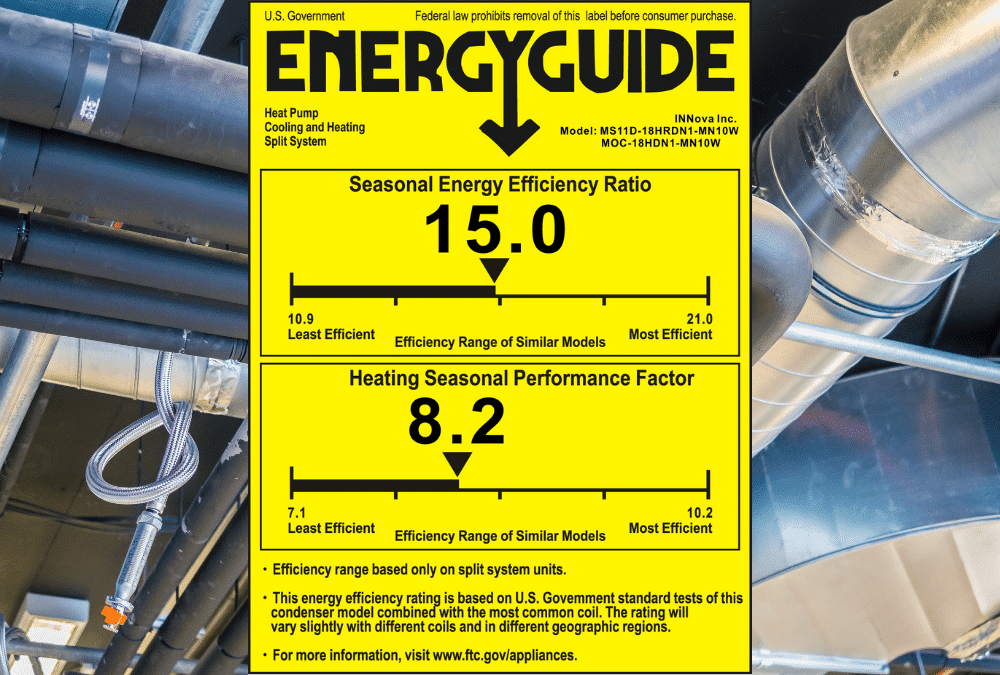
You may come across the term SEER when reading up on HVAC equipment and wonder what it means. This rating stands for Seasonal Energy Efficiency Ratio. This ratio will reflect the cooling output of the air conditioner during the typical cooling season which will be divided by the energy in watt-hours.
This ratio is calculated by using a constant indoor temperature and outdoor temperatures which are ranging from 60 to 100 degrees. This outdoor temperature will simulate a typical season. You can keep in mind that the SEER ratio will be the maximum efficiency rating. It can be lower depending on many different conditions.
How SEER is used?
You can take a look at the SEER ratio for finding the efficiency of the HVAC system in your home. The minimum standard SEER rating will be around 13 for the air conditioners. Most modern air conditioners will have a SEER rating which can range from 13 to 21. For being qualified as the Energy Star air conditioners, these devices should have a SEER rating of 14.5 or more. The efficiency of your HVAC system will also depend on your home size, the current ductwork, and any other variables.
Some people are asking for the ideal SEER rating for their HVAC systems. This is a hard question to answer because a good rating will depend on many factors that are unique to each home, for example, home size, location, and also what you are looking for in the cooling and heating system. However, the US Department of Energy has minimum SEER requirements for several regions in the US.
The minimum rating in the Southeast and Southwest area will be 14. The north region, where we operate, will have a minimum SEER rating of 13. It is recommended for you to buy any HVAC units that have a SEER rating that is higher than this minimum requirement. High-rated SEER units will save a lot of your money because they have a more efficient system. Therefore, they can be used to save energy from your HVAC system.
Benefits of the High SEER Rating?
1. High energy efficiency
High SEER rated devices will be more efficient than the other low-rated units. You can boost the performance of your HVAC units when you use any devices with a high SEER rating. You can reduce the overall monthly costs in your home, especially when you use these devices.
2. Feel comfortable in your room
Installing a good air conditioning system with a higher SEER rating will make you feel financially and sustainably comfortable in the summer months. You can get this benefit, especially if you live in any hot regions, such as Southwest or Southeast areas. High SEER units usually have 2 main components that can provide great indoor comfort, including a variable-speed blower, and also 2-stage compressor.
3. Save the environment
This is another good reason why you may want to use any devices with a high SEER rating. These devices usually have a good system that will cause significantly less of a negative impact on the environment. If you care about the environment, you may want to take a look at some HVAC units with a high SEER rating. Most high SEER rated devices will have fewer gas emissions than regular devices.
SEER in the Future
When we are talking about SEER rating, we can expect to have this rating to become more important in the next couple of years. The new standards which are effective in 2023 will require every device to have a high seasonal energy efficiency ratio or SEER. All devices with SEER rating lower than 14 will be banned in the northern part of the United States or lower than 16 will be banned in the southern part of the United States.
There are a lot of SEER rating calculators that are available on the Internet today. You can use any of these calculators when you want to calculate the total SEER rating for any of your devices in your home. If you want to have efficient HVAC units, you can always buy the best heating and cooling units with a high SEER rating for being placed in your residential or commercial properties. Contact us today!
